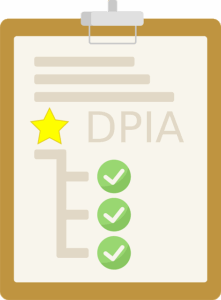Maximizing Impact: Translating UK Scientific Posters for Global Audiences
Translation services for UK Scientific Posters play a pivotal role in ensuring that groundbreaking research from the United Kingdom is accessible and understood by an international scientific community. These services enable effective global communic…….

Translation services for UK Scientific Posters play a pivotal role in ensuring that groundbreaking research from the United Kingdom is accessible and understood by an international scientific community. These services enable effective global communication by accurately translating complex scientific content into multiple languages, including Spanish, Mandarin, French, German, and Arabic, which are widely used in scientific circles worldwide. Employing expert linguists who specialize in scientific terminology and cultural nuances is crucial for maintaining the integrity of research findings across different languages and cultures. By providing translations that are precise and contextually accurate, these services help researchers overcome language barriers, connect with a broader audience, and engage in meaningful international collaboration. This not only enhances the impact of UK scientific contributions but also showcases their relevance on the global stage, demonstrating the essential contribution of translation in supporting the global dissemination and influence of UK research initiatives.
navigating the multifaceted realm of scientific communication, the necessity for translation services for UK scientific posters emerges as a critical aspect in engaging a global audience. This article delves into the significance of multilingual communication within the scientific community and how professional translation services can bridge language barriers. We explore which languages are most impactful for scientific poster translations, offer insights on best practices for conveying complex content accurately, and guide the selection process for a dependable translation service provider. With case studies illustrating effective translation in international settings, this piece underscores the pivotal role of precision and cultural sensitivity in sharing scientific discoveries across linguistic boundaries.
- Understanding the Importance of Multilingual Communication in Science
- The Role of Professional Translation Services for UK Scientific Posters
- Identifying Key Languages for Scientific Poster Translation
- Best Practices for Translating Complex Scientific Content
- Selecting a Reliable Translation Service Provider for Scientific Materials
- Case Studies: Effective Translation of Scientific Posters in Global Contexts
Understanding the Importance of Multilingual Communication in Science

In the dynamic landscape of scientific research, clear and accurate communication is paramount. The United Kingdom, being a member of the international scientific community, frequently engages with colleagues and stakeholders across different linguistic regions. This necessitates the provision of high-quality translation services for UK scientific posters to ensure that research findings are accessible and comprehendible to a global audience. Multilingual communication in science is crucial as it breaks down language barriers, facilitating collaboration, knowledge sharing, and the dissemination of critical information across disciplines. When scientific posters are presented at conferences or published in journals that reach an international audience, translation becomes an integral aspect of effective scientific dialogue. It ensures that the nuances of research, including methodologies, results, and conclusions, are accurately conveyed, thereby enhancing the impact and applicability of UK-based scientific endeavors on a global scale. Utilizing professional translation services for UK Scientific Posters not only aids in understanding and compliance but also promotes inclusivity and innovation within the scientific community at large.
The Role of Professional Translation Services for UK Scientific Posters

When disseminating scientific findings, clarity and precision are paramount. In the UK’s diverse research landscape, scientific posters serve as a critical mode of communication, often presented at conferences and symposia to an international audience. To ensure that these posters effectively convey complex information and reach a broader spectrum of stakeholders, professional translation services play an indispensable role. These services bridge linguistic barriers by accurately translating UK Scientific Posters into multiple languages, thus making the research accessible to a global scientific community. This facilitates collaboration across disciplines and countries, enhancing the impact and relevance of the research.
Moreover, professional translation services are not just about language conversion; they offer expertise in cultural nuances, idiomatic expressions, and technical terminology specific to each field of study. This level of specialisation is crucial when dealing with scientific posters that contain highly technical content. By leveraging such services, researchers can present their findings with confidence, knowing that their message will be understood as intended by both native and non-native speakers, thus ensuring effective communication and the widest possible dissemination of UK Scientific Posters on an international scale.
Identifying Key Languages for Scientific Poster Translation

When considering translation services for UK scientific posters, identifying the key languages is paramount to effectively communicate research findings to a global audience. The United Kingdom’s rich cultural and linguistic diversity necessitates that translations are not only accurate but also resonate with the intended demographic. English, as the lingua franca of science, remains essential for international dissemination; however, translating posters into other major languages, such as Spanish, Mandarin, French, German, and Arabic, can significantly enhance the reach and impact of UK scientific research. These languages are widely spoken across various continents and are often used in scientific communities, making them crucial for inclusivity and accessibility at conferences and symposia. By leveraging professional translation services that specialise in scientific terminology, researchers can ensure their posters are understood by a broader international audience, thereby fostering collaboration and sharing knowledge across linguistic barriers. This strategic language selection is not only beneficial for individual researchers but also for institutions aiming to showcase their contributions on the global stage. In the UK, where scientific innovation is a cornerstone of progress, the choice of languages for translation should be guided by data on global research participation and audience engagement, ensuring that every reader can grasp the significance and nuances of the findings presented in these posters.
Best Practices for Translating Complex Scientific Content

When translating complex scientific content, such as posters for UK-based scientific endeavors, precision and accuracy are paramount. The nuances of scientific terminology demand a deep understanding of both the source and target languages to ensure that the essence and technicalities of the research are conveyed accurately. Translation services specializing in UK scientific posters should employ expert translators with specialized knowledge in the field relevant to the content. These professionals must possess a robust grasp of both the scientific subject matter and linguistic nuances, ensuring that all figures of speech, terminologies, and data representations are accurately translated.
Moreover, cultural considerations are equally important when localizing scientific posters for a UK audience. Translation services must account for cultural contexts, idiomatic expressions, and the conventions of academic discourse to avoid misinterpretation or offense. A strategic approach involves collaborating with native-speaking subject matter experts who can guide the translation process to maintain the integrity and clarity of the scientific content. By integrating these best practices, translation services for UK scientific posters can bridge communication gaps, facilitate international understanding, and support the global dissemination of research findings.
Selecting a Reliable Translation Service Provider for Scientific Materials

When the need arises to translate scientific posters for presentation in the UK, selecting a reliable translation service provider is paramount to ensure clarity and accuracy across different languages. The precision of scientific terminology necessitates expertise in both the source and target languages, as well as a profound understanding of the subject matter. A competent translation service specialising in scientific materials will have translators with backgrounds in science or relevant fields, ensuring they can handle complex concepts and industry-specific jargon. They should also be adept at using terminology databases and have a track record of working with academic institutions, research bodies, and pharmaceutical companies. Additionally, such a service provider should offer confidentiality agreements to protect sensitive data, adhere to industry standards like ISO 17100, and provide a preview or sample translation for your review to confirm their proficiency in conveying the nuances of your scientific content effectively. By choosing a dedicated and skilled translation service for UK scientific posters, you can confidently communicate your research to an international audience with precision and professionalism.
Case Studies: Effective Translation of Scientific Posters in Global Contexts

When it comes to disseminating scientific findings, the effectiveness of communication is paramount. In the UK, where research often has a global impact, translating scientific posters is not just a service but a strategic tool for engagement and collaboration. Case studies have demonstrated that professional translation services for UK scientific posters can significantly enhance their reach and influence. For instance, a study presenting groundbreaking research on renewable energy sources was translated into multiple languages. This allowed the researchers to present their findings at an international conference, leading to partnerships with global institutions and increased funding opportunities. Similarly, a medical research team found that translating their poster into several key European languages enabled them to participate in multinational clinical trials, sharing their data with a wider audience and contributing to a larger body of research. These case studies underscore the importance of translation services for UK scientific posters in effectively communicating complex information across linguistic and cultural barriers, thereby expanding the impact and relevance of UK-based research on the global stage. Translation not only makes the content accessible but also demonstrates respect for diverse audiences, fostering inclusivity and open collaboration within the scientific community.
In concluding, the critical role of translation services in bridging linguistic barriers for UK scientific posters cannot be overstated. By ensuring multilingual communication, researchers expand their reach, facilitating the dissemination of groundbreaking discoveries and fostering international collaboration. The selection of a reliable service provider adept in handling complex scientific content is paramount, as demonstrated by the case studies presented. These real-world examples underscore the effectiveness of professional translation services for UK scientific posters in engaging diverse audiences globally. As the scientific community continues to push the frontiers of knowledge, the necessity for precise and accurate translations becomes increasingly vital, ensuring that UK research maintains its influence and impact on the world stage.






